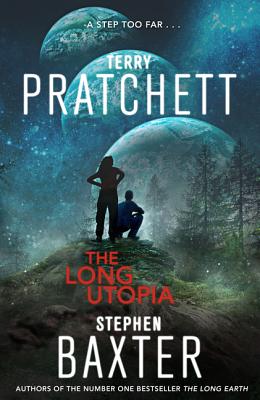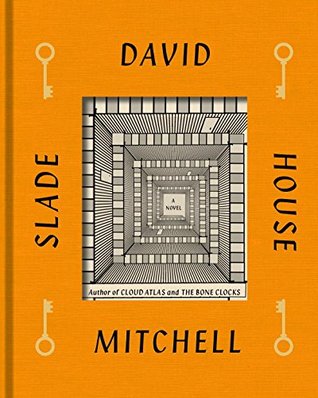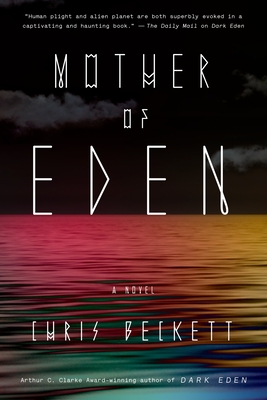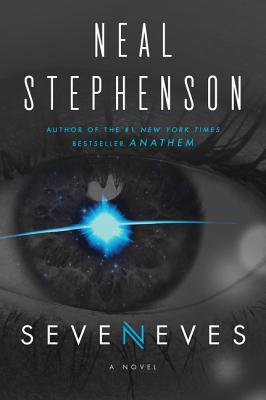Paul Kincaid's From the Other Side, June 2015: David Mitchell, Al Robertson's Crashing Heaven, Chris Beckett, Neal Stephenson, Terry Pratchett, Laura Barnett, and more
← Coming to Town: Nathan Ballingrud for "Noir at the Bar" at 106 Main in DurhamThe Hardest Part: Alex J. Cavanaugh on Dragon of the Stars →
Paul Kincaid's From the Other Side, June 2015: David Mitchell, Al Robertson's Crashing Heaven, Chris Beckett, Neal Stephenson, Terry Pratchett, Laura Barnett, and more
Posted on 2015-07-04 at 11:52 by montsamu
From the Other Side, June 2015 By Paul Kincaid
[Editor’s Note: From the Other Side is Paul Kincaid’s monthly column on books and news from the other side of the Atlantic.]
It has turned out to be something of a David Mitchell month for me. First to the glorious setting of the Union Chapel in North London where Mitchell and Neil Gaiman were in conversation, with Erica Wagner, the Literary Editor of The Times as a (fairly unnecessary) moderator. It turns out that, though they admire each other’s work, this was the first time they had actually met (the conversation was recorded and can be heard here). During the course of the conversation, Gaiman revealed that, just minutes before, he had received confirmation that the television series of American Gods is to go ahead. The novel itself will provide the first three seasons, and he had already laid out his plans for the as-yet-unwritten sequel which will provide subsequent seasons.
A few days later, Mitchell turned up in Canterbury where he gave the first ever public reading from his forthcoming novel, Slade House. He told me that this could be considered as a prequel to The Bone Clocks, though the extracts he read seemed to me to be more like a ghost story, and also one of the funniest things he’s written to date.
But all of that, of course, is in the future. For the present, the big novel of the month is probably Al Robertson’s debut, Crashing Heaven (Gollancz). It’s a big concept sf thriller with elements of cyberpunk and elements of space opera in the mix, and an intriguing hero in the shape of Hugo Fist, a ventriloquist’s dummy whose AI mind is slaved to that of his companion, Jack Forster, and who is suspected of turning traitor in the recently-ended war against rogue AIs.
Long before Crashing Heaven opens, Earth has been abandoned, and that seems to be a common theme in this month’s other new releases. For instance, there’s Mother of Eden by Chris Beckett (Corvus), the sequel to his Arthur C. Clarke Award-winner, Dark Eden. Set generations after the breakup of the human family of Eden, there are two hierarchical, male-dominated societies sustained by violence, but one woman finds herself becoming a stand-in for Gela, the long-dead Earth woman revered as the mother of them all. Then there’s Children of Time by Adrian Tchaikovsky (Tor UK), in which the last remnants of humanity, fleeing a dying Earth, discover a pristine world that seems to have been terraformed and prepared just for them, but this new Eden turns out to be a refuge for mankind’s worst nightmare.
Is it something to do with wanting big adventures for the long summer days? I don’t know, but June does seem to be a month for what Brian Aldiss once christened ‘wide screen baroque’. After all, there’s Nemesis Game, the latest from James S.A. Corey (Orbit). With most of humanity heading out for the stars, the old power structures in the solar system start to break apart, with private armies, terrorist attacks, and a new human order struggling to be born. Then there’s Neal Stephenson, always one for the big and the bold, with his mighty new novel Seveneves (The Borough Press), which covers some 5,000 years from when humanity has to flee a threatened Earth to when their descendants, having developed into seven distinct races, return to an Earth which has become an alien world utterly transformed by cataclysm.
Good lord, is there any science fiction these days in which Earth doesn’t face some sort of existential threat? Well, no, not even if there are multiple Earths as in The Long Utopia by Terry Pratchett and Stephen Baxter (Doubleday), the fourth volume in their Long Earth sequence. In this volume the aging, cantankerous Lobsang, living quietly in a remote world, begins to realise that the strange sightings and hauntings that are being reported pose a threat to all the worlds of the Long Earth. This is not quite Pratchett’s last novel, there’s a new Tiffany Aching novel, The Shepherd’s Crown, due in August, but after that there’s nothing more, because the other news of the month has been that his daughter, Rhianna, has announced that no-one will be continuing Discworld, or any of Pratchett’s other series.


Well, okay, there are still some works on a more human scale without death and destruction hanging over us all. Like The Versions of Us by Laura Barnett (Weidenfeld & Nicholson). I said some time ago that Kate Atkinson’s Life After Life seemed to have ushered in a new subgenre, the alternate lives of women, with books like Jo Walton’s My Real Children following in its wake. This is another in the same mode, in which Eva and Jim meet in the 1950s and fall in love, or they just miss each other, or it all goes horribly wrong. It’s an alternative romance, but is it science fiction? After all, the Earth is still there at the end.
—
British sf critic Paul Kincaid is the author of the Hugo Award-nominated What It Is We Do When We Read Science Fiction and a recently-released collection of reviews, Call And Response (Beccon). He has won both the Thomas D. Clareson Award and the BSFA Non-Fiction Award.
[caption id=“attachment_2984” align=“alignnone” width=“300”] photo credit: Maureen Kincaid Speller[/caption]
photo credit: Maureen Kincaid Speller[/caption]




